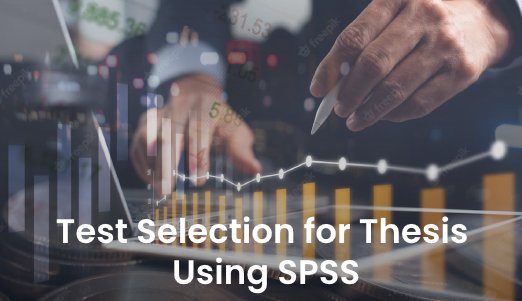Five Reasons Why to Use SPSS for PhD Research
Introduction
Doctoral degrees require additional research and data analysis. For example, it tests hypotheses and determines which variables affect outcome measures. Researchers must analyse the collected data for conclusions.
If you want to understand why SPSS data
analysis is better than any other software, this article
will give you everything to help you.
Following are the reasons why SPSS is
beneficial in Ph.D. Data analysis and research:-
1. Efficient analysis of scientific
data
SPSS (Statistical Package for Social
Sciences) is one of the most commonly used programs for data analysis. SPSS’s.
Researchers widely use the current version of SPSS( STATA) to analyse data. The
main application of SPSS is to check logical information related to sociology.
Researchers use the information for statistical surveys, observations, etc. If
you’re doing social science research, SPSS can be extremely useful for analysing
your data.
2. Transformation of Data
SPSS can be used to change the data
format. After changing its type, SPSS incorporates the same kind of data in one
place for efficient data management. You can embed different types of
information in SPSS, and it will change its structure according to the
framework description and prerequisites. It means that even if you change the
operating system, SPSS will still work on the previous information.
3. Powerful Data Management
The SPSS result is kept separate from
other information. In other words, it saves the obtained data in various
indexes and documents. Since this software knows different variables and
particular locations of cases, it makes information testing faster and simpler.
4. Regression analysis:
Another influential factor and a
reason to use SPSS help is
regression analysis. Researchers use it to understand data records’
trustworthiness and related factors. It also clarifies how an associated
variable’s adjustment can affect the dependent data. The essential requirement
of regression analysis is understanding the relationship between different
variables.
5. ANOVA and MANOVA
Variance analysis, also known as
ANOVA, is a natural way of summarising events, groups, or processes and
discovering their differences. It can help you understand which strategy is
more appropriate for doing a particular task. By analysing the result, you can
track the feasibility of a specific technology. Researchers also use the MANOVA
strategy to examine different types of populations and variables that affect
the population’s decision.
Conclusion
The above points explain why most Ph.D. students prefer SPSS as the primary choice for research and analysis. As you know, your Ph.D. Research is a long process and takes a lot of effort and using the best available tools will help you to succeed. But if you still have issues understanding SPSS, contact experienced professionals from renowned consultancies to help you.





Comments
Post a Comment